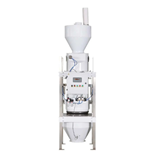However, it was put forward in the context of trying to help international negotiations with the realisation that the world must absolutely avoid exceeding 550 parts per million (ppm) of atmospheric carbon.
Professor Garnaut acknowledged that a safer figure for the world to aim at would be below 450 ppm but his sombre message was that these more aggressive targets are not feasible "at this time". NASA climate scientist Dr James Hansen however has called for the world to do everything possible to reduce atmospheric concentrations to below 350 ppm.
Whilst acknowledging the pragmatism of Professor Garnaut’s recommendations, Environment Business Australia CEO Fiona Wain said “Professor Garnaut was at pains to explain that the modelling used did not include the extensive benefits that next era technology can provide. Nor did the modelling include the impacts of damage that could not have a direct economic cost applied to it – how does one ‘price’ higher mortality rates? But we believe that energy efficiency, switching to cleaner sources of energy and renewable energy, and the concept of mega ‘clean energy parks’ that could value-add to Australian manufacturing, all need to be factored into modelling – perhaps then our national target could be more aspirational.”
EBA has previously suggested that 40% cuts in GHG emissions could be achieved by 2020 (against today’s baseline) – through energy efficiency; fuel switching to gas; solar thermal, marine, solar and wind power; photovoltaic energy and hot water; recycling materials, embodied energy and soil carbon from the food chain.
“The disappointment today was Professor Garnaut’s reluctant acceptance that averting the worst extremes of climate change may no longer be possible. However, at EBA we believe there is still a significant and vitally important opportunity to weave smarter and more efficient approaches, clean technology and clean energy into production and consumption in Australia and around the world”. Added Fiona Wain.
With a softer target than anticipated, Environment Business Australia says this will put the onus on Government to have a strong transitional framework of complementary measures alongside the Carbon Pollution Reduction Scheme. “As Professor Garnaut rightly says - a target of 550 ppm is a step in the right direction but we all “need to nurture the slender chance that humanity can get it together” to take action to keep atmospheric carbon below concentrations of 450 ppm.
New technologies that can help solve the climate change problem and buffer against rising energy prices need access to markets of scope and scale if they are to come down the 'cost curve'. Like mobile phones and personal computers, energy efficiency and renewable energy technologies will become cheaper as their market grows. But the market needs clear indicators of their economic value and today’s target did not deliver that.
Complementary measures, like the Renewable Energy Target of 20% by 2020, now need to include an energy efficiency target; a gross feed-in tariff of at least 40 cents a KWh; fiscal incentives like accelerated depreciation and reinvestment tax concessions to drive commercialisation of innovation.
EBA believes that Australia’s leadership opportunity is to demonstrate how an energy intensive economy can retain prosperity by being smarter and more efficient. Every step forward is important, especially if it is one that is building our next competitive edge in a global carbon-constrained market - international buyers, consumers and investors are already favouring low carbon goods and services.
Background notes:
As a way forward in the current debate EBA has suggested that instead of providing 'compensation' to energy intensive trade exposed companies, Government investigate structural adjustment assistance to make Australian operating entities as efficient and competitive as possible. Accelerated depreciation, innovation and R&D funding, re-investment tax concessions, are just a few of the options available.
EBA also recommends removal of State based retail energy price caps, and that all levels of government use their procurement, investment and leasing spend to fast-track national-interest infrastructure projects and to bring new standards of automobiles to market.
One of the biggest impediments to action is that fossil fuel energy has traditionally been considered "cheap" or "low cost". Once the negative externalities of pollution are included fossil fuels are no longer the lowest cost energy option. On the other hand, the cost of renewable energy technologies - capable of powering major infrastructure projects as well as providing electricity - is predicted to come down once they have accessed markets of scale. Australia could become a global minerals processing and manufacturing hub with 'clean energy parks' combining geothermal, solar thermal, marine, and wind power. Solar PV is already providing hot water and household and commercial energy.
The investment costs in new or upgraded capital stock associated with the transition to a clean energy future will pay dividends with lower operating costs; reduced pollution and environmental degradation; and foreseeably improved agricultural productivity.
Globally environmental or cleantech businesses are set to double their $750 billion turnover in the next few years. This is one of the fastest growing sectors in the world. In Australia the sector contributes approximately $21 billion per annum to the economy. Environment Business Australia believes that tackling climate change is a major wealth generation and preservation opportunity. Australia can play an important international leadership role by demonstrating that an energy intensive country can retain its prosperity by becoming smarter and more efficient. This is also where the next era of Australian jobs will come from.
Environment Business Australia is preparing a submission on the Green Paper on behalf of progressive business. For further information or interview please contact Fiona Wain, Environment Business Australia Tel 0409 455 992.
- Suppliers
- New to IndustrySearch? Book a Demo
- Advertise with us
- Login
- Email Marketing
- Buyers
- Get Quotes
- Articles & Ideas
- Login
- Subscribe to newsletter
- My Details
- Get Quotes
- Automation & Control
- Automotive Workshop Equipment
- Commercial Cleaning Equipment & Supplies
- Construction Equipment & Heavy Machinery
- Conveyor Systems & Components
- Electrical & Power Generation Equipment
- Electronic Components
- Farming & Agriculture
- Food & Beverage Processing
- Forklifts & Forklift Attachments
- Hydraulic & Pneumatic Equipment
- Industrial Materials, Tools & Components
- Industrial Pumps
- IT Hardware & Industrial Computing
- IT Software & Applications
- Laboratory Equipment & Instruments
- Manufacturing & Industrial Equipment
- Material Handling & Lifting Equipment
- Metalworking & Machining
- Mining Equipment & Machinery
- Packaging & Labelling Machinery
- Pallet Handling Equipment
- Personal Protective Equipment
- Security & Surveillance
- Test & Measurement
- Transport & Logistic Equipment
- Warehouse Storage, Shelving & Racking
- Waste Treatment & Environmental Management
- Welding Machines & Accessories
- Woodworking & Joinery Machines
- Workplace Equipment
- Workplace Safety Equipment
- Get Quotes
- Automation & Control
- Automotive Workshop Equipment
- Commercial Cleaning Equipment & Supplies
- Construction Equipment & Heavy Machinery
- Conveyor Systems & Components
- Electrical & Power Generation Equipment
- Electronic Components
- Farming & Agriculture
- Food & Beverage Processing
- Forklifts & Forklift Attachments
- Hydraulic & Pneumatic Equipment
- Industrial Materials, Tools & Components
- Industrial Pumps
- IT Hardware & Industrial Computing
- IT Software & Applications
- Laboratory Equipment & Instruments
- Manufacturing & Industrial Equipment
- Material Handling & Lifting Equipment
- Metalworking & Machining
- Mining Equipment & Machinery
- Packaging & Labelling Machinery
- Pallet Handling Equipment
- Personal Protective Equipment
- Security & Surveillance
- Test & Measurement
- Transport & Logistic Equipment
- Warehouse Storage, Shelving & Racking
- Waste Treatment & Environmental Management
- Welding Machines & Accessories
- Woodworking & Joinery Machines
- Workplace Equipment
- Workplace Safety Equipment
Trusted by 1,000,000+ Australian industrial buyers
Buyers
- Discover products & solutions
- Login
- Subscribe To Newsletter
- Browse All Products
- Read Articles
Suppliers
Advertise
- Promote your products & solutions
- New to IndustrySearch? Book a Demo
- Login / Forgot Password
- Advertise Your Products
- Success Stories
- Email Marketing
- Suppliers
- Advertise with us
- Login
- Email Marketing
- Buyers
- Get Quotes
- Articles & Ideas
- Login
- Subscribe to newsletter
- My Details
Get Quotes
- Automation & Control
- Automotive Workshop Equipment
- Commercial Cleaning Equipment & Supplies
- Construction Equipment & Heavy Machinery
- Conveyor Systems & Components
- Electrical & Power Generation Equipment
- Electronic Components
- Farming & Agriculture
- Food & Beverage Processing
- Forklifts & Forklift Attachments
- Hydraulic & Pneumatic Equipment
- Industrial Materials, Tools & Components
- Industrial Pumps
- IT Hardware & Industrial Computing
- IT Software & Applications
- Laboratory Equipment & Instruments
- Manufacturing & Industrial Equipment
- Material Handling & Lifting Equipment
- Metalworking & Machining
- Mining Equipment & Machinery
- Packaging & Labelling Machinery
- Pallet Handling Equipment
- Personal Protective Equipment
- Security & Surveillance
- Test & Measurement
- Transport & Logistic Equipment
- Warehouse Storage, Shelving & Racking
- Waste Treatment & Environmental Management
- Welding Machines & Accessories
- Woodworking & Joinery Machines
- Workplace Equipment
- Workplace Safety Equipment
Get Quotes
- Automation & Control
- Automotive Workshop Equipment
- Commercial Cleaning Equipment & Supplies
- Construction Equipment & Heavy Machinery
- Conveyor Systems & Components
- Electrical & Power Generation Equipment
- Electronic Components
- Farming & Agriculture
- Food & Beverage Processing
- Forklifts & Forklift Attachments
- Hydraulic & Pneumatic Equipment
- Industrial Materials, Tools & Components
- Industrial Pumps
- IT Hardware & Industrial Computing
- IT Software & Applications
- Laboratory Equipment & Instruments
- Manufacturing & Industrial Equipment
- Material Handling & Lifting Equipment
- Metalworking & Machining
- Mining Equipment & Machinery
- Packaging & Labelling Machinery
- Pallet Handling Equipment
- Personal Protective Equipment
- Security & Surveillance
- Test & Measurement
- Transport & Logistic Equipment
- Warehouse Storage, Shelving & Racking
- Waste Treatment & Environmental Management
- Welding Machines & Accessories
- Woodworking & Joinery Machines
- Workplace Equipment
- Workplace Safety Equipment
Trusted by 1,000,000+ Australian industrial buyers











